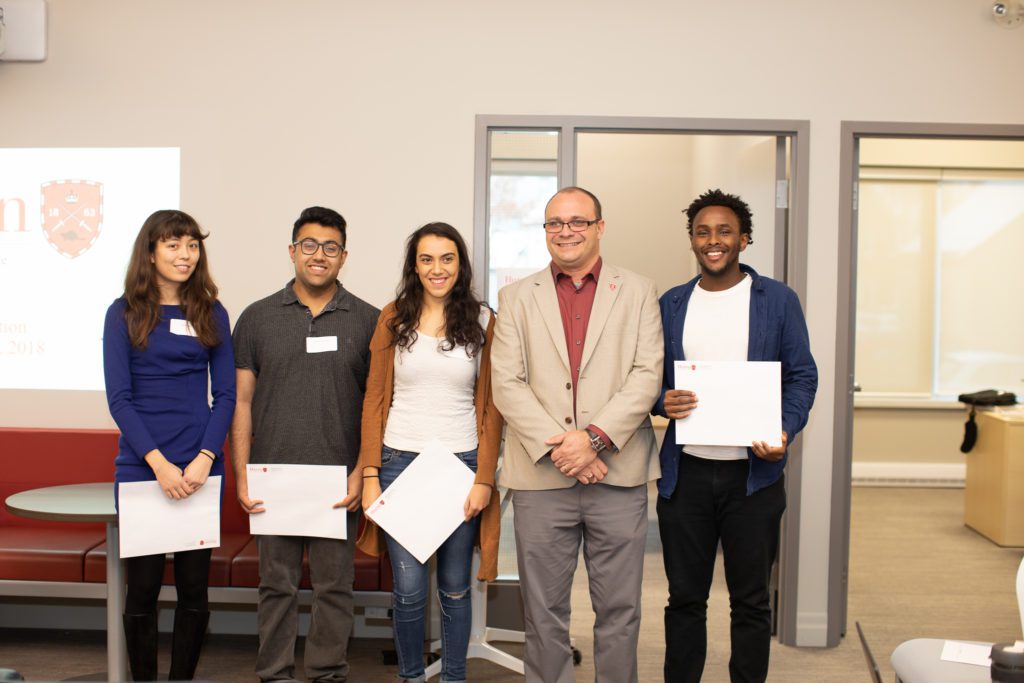
At our 2018 Fall Exhibition, we officially awarded the 2018-19 school year CURL Fellows their cheques. CURL Fellowships are awarded based on students’ articulation of the research problem, the significance of the research, and the research design/methodology. We were seriously impressed with these students’ awesome ideas!
Taylor Boyd’s project will seek to determine whether and how Canadian teachers’ conceptions and teaching methods for creativity differ from their Norwegian counterparts. According to Bennett (2005), Nordic countries’ approach to early childhood education fits the social pedagogic model, encouraging development of local curriculum and broad developmental goals as opposed to formal assessment. Canada, on the other hand, was viewed as maintaining a balance between the social pedagogic approach and the pre-primary model, which involves a centralized curriculum, as well as an emphasis on teaching, learning outcomes, and evaluation.
On a previous research trip, Taylor collected data about teaching methods in Norway using teacher interviews, questionnaires, and classroom observations. Analysis of the data Taylor collected suggests the importance of student autonomy, intrinsic motivation, and an outdoor environment. Throughout this school year, Taylor will continue her research by investigating whether Canadian teachers view the same factors as being essential to developing creativity, while considering the impact of environmental and cultural differences, curriculum guidelines, and teacher education.
Rohan Noronha will assess the role and influence the growing demographic of visible minority Canadians has in Federal politics. In particular, it will look at trends in the number of visible minorities running and being elected in Federal politics, identify specific ethnic groups that have a large candidate concentration and those which lack representation, examine whether sex affects election outcomes when the candidate is a visible minority, and investigate how minorities are being used strategically by Canada’s biggest political parties.
Baraa Abuzayed will use her Fellowship to research the history of Palestinian embroidery/cross-stitch and its transformation since 1948 to a powerful cultural symbol of Palestinian identity. Palestinian embroidery is an old tradition that was limited to women’s dresses before 1948. Post 1948, embroidery could be found on dresses, cushions, scarves, picture frames and more; it has become a highly politicized national symbol attesting to deep roots in historical Palestine. Baraa’s research will analyze the representation of Palestinian embroidery in contemporary activist art; demonstrate that cultural production is inseparable from political issues; identify whether Palestinian embroidery is disappearing, dispersing, or taking on new forms; and create a framed, annotated collection of Palestinian embroidery motifs.
Abdul Abdihalim will use his $1500 Fellowship to explore the findings describing the economic experience of refugees in Canada. What are the labour market outcomes for refugees in Canada? How does the refugee’s economic performance fare against immigrants that are selected for their skills against Canadian-born citizens? Which provinces’ local conditions promote or hamper economic integration? How much do the refugees’ economic outcomes vary over time? Abdul hopes his research will influence the public debate and shape public policy perspectives around existing refugee resettlement programs.
Congratulations, all! You’ll make Huron proud!
